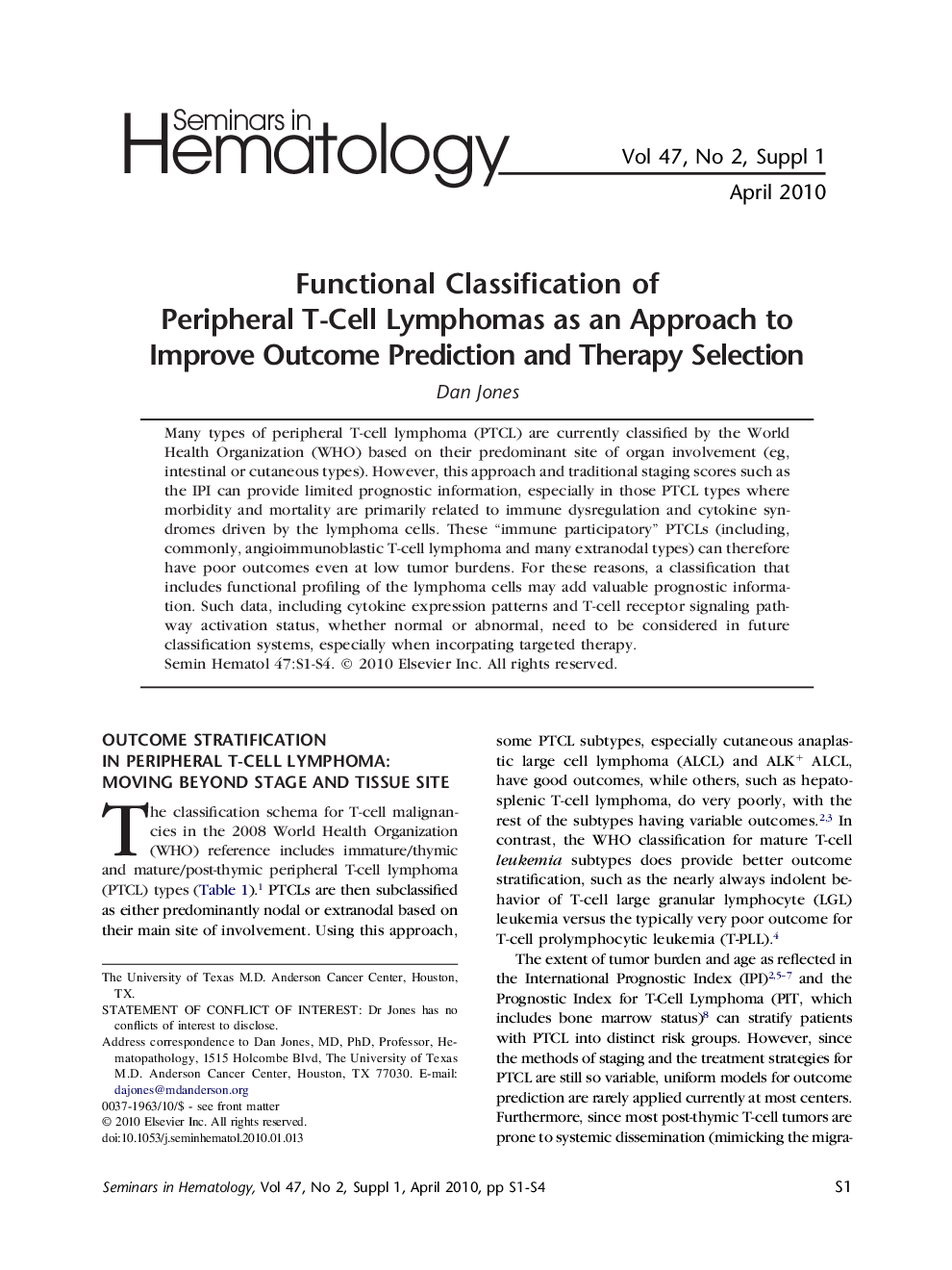| Article ID | Journal | Published Year | Pages | File Type |
|---|---|---|---|---|
| 3333751 | Seminars in Hematology | 2010 | 4 Pages |
Many types of peripheral T-cell lymphoma (PTCL) are currently classified by the World Health Organization (WHO) based on their predominant site of organ involvement (eg, intestinal or cutaneous types). However, this approach and traditional staging scores such as the IPI can provide limited prognostic information, especially in those PTCL types where morbidity and mortality are primarily related to immune dysregulation and cytokine syndromes driven by the lymphoma cells. These “immune participatory” PTCLs (including, commonly, angioimmunoblastic T-cell lymphoma and many extranodal types) can therefore have poor outcomes even at low tumor burdens. For these reasons, a classification that includes functional profiling of the lymphoma cells may add valuable prognostic information. Such data, including cytokine expression patterns and T-cell receptor signaling pathway activation status, whether normal or abnormal, need to be considered in future classification systems, especially when incorpating targeted therapy.
